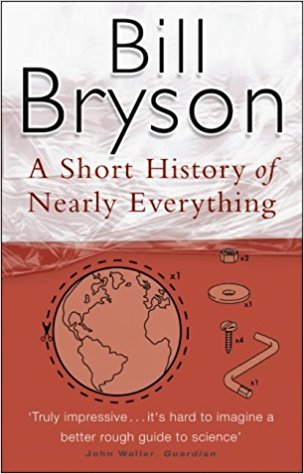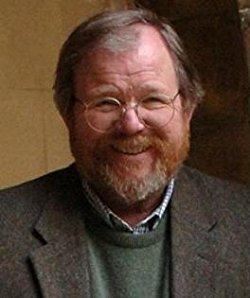 Years and years of progress has lead us to this point, where we are finally ready to seek more in-depth universal knowledge.
Years and years of progress has lead us to this point, where we are finally ready to seek more in-depth universal knowledge.
We summarize the essential human discoveries, in order to produce a quality material easy to digest and understand.
Who Should Read “A Short History of Nearly Everything”? And Why?
How did we end up in this world? Why have we evolved into this form? How was the universe created? Who is responsible for this world?
Every journey starts with a question. Over the course of time, philosophers and renowned scientists, have been involved in various debates to try and resolve these mysteries.
Are facts and concrete information the only solution to reach full discovery of a complex entity – is an intriguing question.
“A Short History of Nearly Everything” is designed to stimulate free-flowing ideas and creative thinking that will aid humanity in a battle for a higher level of wisdom and intellect.
About Bill Bryson
 Bill Bryson is one of America’s finest authors, with several bestsellers. He is known for his wide range of expertise such as science, travel, linguistics, etc.
Bill Bryson is one of America’s finest authors, with several bestsellers. He is known for his wide range of expertise such as science, travel, linguistics, etc.
Bill earned the respect of the British People by portraying Great Britain in Notes From A Small Island, in a humorous way.
“A Short History of Nearly Everything PDF Summary”
From today’s standpoint, the astrophysicists and other scientists can agree that, almost 98% of the universe was created in less than three minutes. Although the forces contributing to such unexplainable establishment are subjected to lots of discussions, no one is yet absolutely sure for the cause of this creation.
As vast as this universe can be, it’s estimated that the span of it’s close to one hundred billion light years, with no signs of stopping in terms of expansion.
The history of the space leaves even the greatest minds into confusion. Not only that it’s unimaginable in size and scope, but also, it’s beyond the fundamental laws of physics. Astronomers assume that there are approximately 140 billion galaxies, which are actually in our field of investigation.
Figuratively speaking, if these galaxies were representatives of a single fruit, you could feed the entire planet. Probably now, you can understand the big picture, of how enigmatic our “home” is. It’s like being in a cave; even though it’s enormous and massive, you’re not sure what might be hiding or are there any signs of life – other than you, of course.
The unresolved mystery – Are we the only intelligent creatures in this universe?
Science, astronomy, and astrophysics are still on the edge when it comes to this question. It’s best if you are not inclined towards one solution or the other, and perceive things impartially. We haven’t gathered enough facts, and we don’t have enough resources that will give us some valuable insights.
Many renowned scientists have shared their viewpoints, including professor Frank Drake, who declared that humans are probably only 1 out of millions of advanced societies.
Isaac Newton and Albert Einstein:
Paleontologists by investigating fossils have tried to determine the Earth’s age and how this record can later be divided into epochs.
However, to further understand our advancement and technological enhancement, it’s advisable that you learn the ropes of Newton’s three laws of motion and Einstein’s theory.
These laws serve a higher purpose than merely understanding that one universal body is affected by other/s and vice versa. For instance, thanks to Newton’s revelation, or laws, scientists can even measure the weight of the earth – a task impossible to conduct without this resource.
Albert Einstein realized that time, weight, and pretty much all other concepts are nothing but relative. For some people, this theory is a tough bite to digest but look at this way – To get from one city to another, you may see it would take me about an hour. What if you are traveling with an airplane? i
As you can see, the outcome depends on other factors, which makes your arrival relative.
Studying is not always the route to your “Eureka moment“. That same fact was discovered by scientists who tried to penetrate deep into atomic-mysteries by utilizing the conventional laws of physics.
This theory gives rise to various ideas and facts.
Even if you are not familiar with the importance of the quantum theory, it’s suitable to be aware of how it messes with people’s minds rather than providing clarity.
This branch delivers two subcategories linked to laws of nature: First, it includes the subatomic world and the other is reserved for the noble universe.
Let’s return to our home-base
In general, a vast portion of our planet is entirely inhabitable, and inaccessible to humans. According to one study, nearly 99.5 % of the Earth’s belongs to the wilderness, where you cannot find signs of civilization.
When it comes to land, only 12% is habitable, leaving 88% to mother nature.
Key Lessons from “A Short History of Nearly Everything”
1. This kingdom belongs to the bacteria
2. Einstein’s revelation
3. The number of Earth’s residents
2. Einstein’s revelation
3. The number of Earth’s residents
This kingdom belongs to the bacteria
Often referred as “sick,” germaphobes are strict when it comes to bacteria. Washing your hands, and bathing will not give you the desired effect because they’ll always surround you.
Take this fact under consideration: An average human has at least one trillion bacteria only on its skin.
Einstein’s revelation
The theory of relativity, however, struggles to manipulate the sequence of the subatomic world, and the quantum theory, on the other hand, returns the favor, by not being adequate to clarify concepts like weight, time or gravity.
The number of Earth’s residents
It’s totally ignorant to declare that we have many different species living on this planet. Such inaccurate statement produces little value.
The truth is, a large portion of these species are still undiscovered, and it’ll take time to identify all 3 – 200 million creatures.
“A Short History of Nearly Everything Quotes”
There are three stages in scientific discovery. First, people deny that it is true, then they deny that it is important; finally they credit the wrong person.It is a slightly arresting notion that if you were to pick yourself apart with tweezers, one atom at a time, you would produce a mound of fine atomic dust, none of which had ever been alive but all of which had once been you.Protons give an atom its identity, electrons its personality.When the poet Paul Valery once asked Albert Einstein if he kept a notebook to record his ideas, Einstein looked at him with mild but genuine surprise - Oh, that's not necessary, he replied. It's so seldom I have one.The upshot of all this is that we live in a universe whose age we can't quite compute, surrounded by stars whose distances we don't altogether know, filled with matter we can't identify, operating in conformance with physical laws whose…Our Critical Review
When you really have little clue of what’s hiding in there, then that thing becomes more enigmatic. The same thing happened with Bill’s book.
From the start, we sensed the uniqueness emerging and never questioned the book’s trustworthiness.

0 comments:
Post a Comment
Note: only a member of this blog may post a comment.